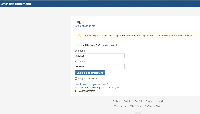-
Bug
-
Resolution: Fixed
-
Low
-
34
-
Steps to (sometimes) reproduce:
- log into Cloud with your default browser,
- click a link to an OnDemand instance (e.g. from a JIRA notification email) from a third-party application (e.g. email client),
- the link will open in the browser that already has a current session in that Cloud instance, yet will prompt you to login.
The third-party applications that have been involved in reported cases include:
- MS Outlook
- MS OneNote
- MS Word
Workaround
With the registry change in place, no requests emanate from the office apps: they are handed over to IE immediately. This should prevent the redirection to the login page, and could therefore be a suitable workaround for customers suffering from this problem.
The registry change consists of setting or creating a DWORD key ForceShellExecute with value 1 under HKEY_LOCAL_MACHINE\SOFTWARE\Microsoft\Office\9.0\Common\Internet.
- mentioned in
-
![[Extranet] Page [Extranet] Page](/images/icons/generic_link_16.png) Page
Failed to load
Page
Failed to load

Is there an update on this issue? The registry fix is impractical and doesn't appear to work on later versions of Office (e.g. 2013)